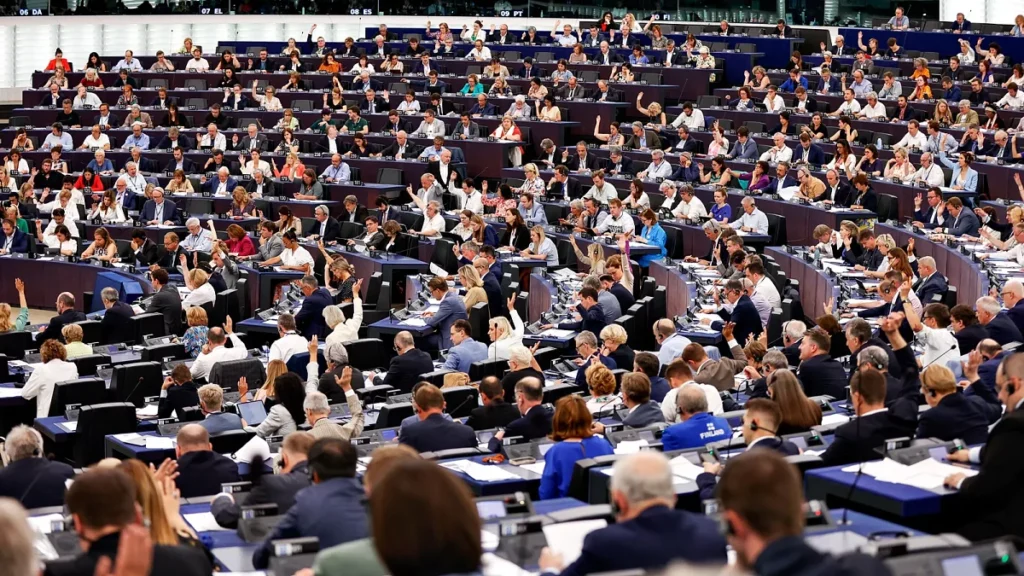EU Nature Restoration Law Stalled as Member States Withdraw Support

|
Listen to this story:
|
The fate of the European Union’s ambitious Nature Restoration Law (NRL) is in jeopardy after several member states reversed their initial support for the legislation. The NRL, a cornerstone of the European Green Deal, aspires to reverse the tide of environmental degradation by restoring at least 20% of the EU’s land and sea areas by the year 2030.
A Contentious Journey
The NRL’s path to approval has been arduous from the outset. Introduced in June 2022, it faced fierce opposition from the agricultural sector, particularly regarding provisions that mandated peatland restoration and established binding restoration targets for future decades. After protracted negotiations, a weakened version of the law was finally agreed upon in November 2023. However, this compromise proved insufficient to garner unanimous support from member states.
The Roadblock and Its Causes
A critical vote in March 2024 witnessed Hungary, Italy, the Netherlands, Sweden, Poland, and Finland withholding their support, placing the law’s passage in serious doubt. The justifications for opposition varied. Some countries, like the Netherlands, took issue with the binding restoration targets for 2040 and 2050, arguing, according to a statement, that these would “intensify” the challenges associated with implementation. Others, like Hungary, expressed concerns about the potential impact on the agricultural sector and food security. Hungary’s state secretary for the environment, Anikó Raisz, defended their position at a meeting of EU environment ministers, citing the “sensitive situation in the agriculture sector and food security.”
International Reputation on the Line
The European Commission and environmental groups reacted to the setback with profound disappointment. Environment Commissioner Virginijus Sinkevičius emphasized the potential damage to the EU’s international environmental leadership, particularly considering its commitments made at international summits like COP15. He stated at a meeting of EU environment ministers, “[I am] not only worried about the political consequences of the non-conclusion of this key EU green file, but also the disastrous signal this sends in terms of our credibility and our institutions, especially internationally.” Environmental NGOs like WWF EU echoed these concerns. In a statement, they condemned Hungary’s last-minute U-turn, accusing them of prioritizing political agendas over environmental protection: “The unexpected and clearly politically motivated change in Hungary’s position […] has now put the NRL in jeopardy again, giving Hungary’s President Viktor Orbán the green light to further his own agenda and hold EU decision-making hostage.“
The Road Ahead Remains Uncertain
Despite the current impasse, Belgium, the current holder of the EU presidency, expressed optimism. They pledged to work towards a solution in the coming weeks. However, the options are limited. Any significant changes to the law would require approval from the European Parliament, which is nearing the end of its session before elections in June. According to a diplomat, the bill “had very little chance of getting through as any substantial changes in the text would require a return to the European parliament for a second reading, which was almost impossible.“
Related Article: MORFO Presents its Innovative Forest Restoration Technology In Rio De Janeiro
The future of the EU’s Nature Restoration Law remains shrouded in uncertainty. The coming weeks will be critical in determining whether the bloc can bridge internal divisions and fulfill its environmental commitments.






